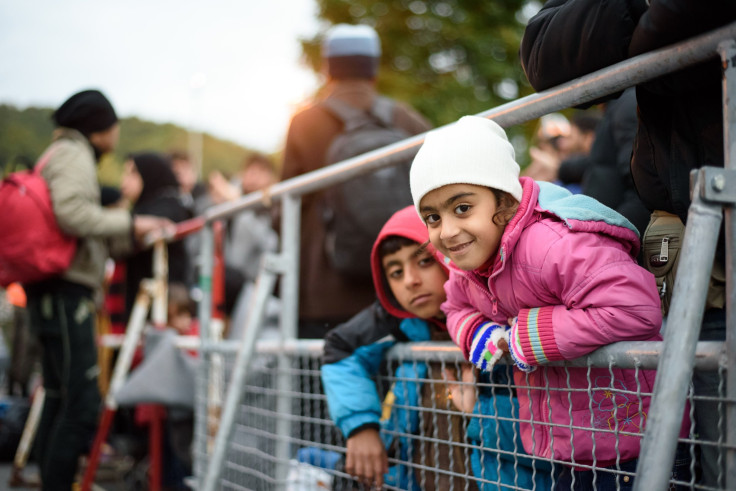Slovenia To Ask For EU Help In Coping With Influx Of Refugees

By Marja Novak and Maja Zuvela
LJUBLJANA, Slovenia/KLJUC BRDOVECKI, Croatia (Reuters) -- Between 1,500 and 2,500 migrants were to spend Tuesday night at the Berkasovo-Bapska border crossing between Serbia and Croatia, some of them sleeping on the ground covered with blankets, the U.N. refugee agency (UNHCR) said.
Slovenia meanwhile is to ask the European Union to send additional police forces to its border with Croatia to help it deal with thousands of migrants streaming into the tiny country on their way to Austria and beyond.
Attempts by Slovenia to stem the flow of migrants since Hungary sealed its border with Croatia on Friday have triggered a knock-on effect through the Balkans, with thousands held up at border crossings.
About 19,500 migrants have entered Slovenia since Friday, the Interior Ministry said, creating bottlenecks as migrants attempted to find new routes through the region.
Slovenian authorities said some 6,000 migrants will stay in Slovenia but all of them will be sheltered in refugee camps.
At least 12,100 migrants were currently in Serbia, the prime minister said on Tuesday.
About 6,000 migrants had entered Austria from Slovenia on Tuesday, a police spokesman in Styria province said. About 3,000 had arrived on Monday.
"We need fast assistance of the European Union," Slovenian President Borut Pahor told a news conference in Brussels after meeting European Council President Donald Tusk and EU chief executive Jean-Claude Juncker.
"Slovenia will formally ask for additional police forces to guard the border between Slovenia and Croatia and for financial help," he said.
In the last two days, the former Yugoslav republic has deployed 140 soldiers to the border to assist the police, Interior Secretary of State Bostjan Sefic told reporters.
Asked if Slovenia could build a border fence like Hungary, Sefic said he could not exclude the possibility of "safeguarding border crossings with physical obstacles".
Later on Tuesday, parliament is due to vote on a bill that would give the army more power in guarding the border.
"WE WILL TRY OUR LUCK"
Over half a million refugees and migrants have arrived by sea in Greece this year and the rate of arrivals is rising with over 8,000 coming on Monday alone, in a rush to beat the onset of freezing winter, the United Nations said.
The vast majority will head to Macedonia and then cross to Serbia looking to reach Western Europe via Croatia and Slovenia, avoiding the previous route through Hungary.
Among the at least 1,500 migrants who crossed a bridge across the Sutla river at the Croatian village of Kljuc Brdovecki and headed for the border with Slovenia, was 35-year-old Taysiir Halaby from the Syrian city of Aleppo.
"I want to go to Germany. We will try our luck no matter what," he said as helicopters flew over Slovenian side of the border.
Croatian authorities said more than 2,000 people were sheltered in the Opatovac camp near the border. From there buses were taking them to the nearest train station in Tovarnik or straight to the Slovenian border.
(Additional reporting by Aleksandar Vasovic in Berkasovo and Francois Murphy in Vienna; Writing by Ivana Sekularac; Editing by Justyna Pawlak and Raissa Kasolowsky)
© Copyright Thomson Reuters 2024. All rights reserved.




















